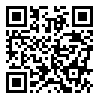
 , Alireza Jazayeri2
, Alireza Jazayeri2 
 , Parvaneh Mohamdkhani2
, Parvaneh Mohamdkhani2 
 , Hasan Rafiei2
, Hasan Rafiei2 
 , Mahmoud Ghazi Tabatabei3
, Mahmoud Ghazi Tabatabei3 

2- university of social welfare and rehabilitation sciences
3- University of Tehran
The purpose of this study was to test the direct and indirect impact of attitude, locus of control, self-management skills and social commences on drug use among at risk adolescents. The subjects of the study were 480 students of junior high schools (mean age15.5 years) in Tehran City. Students completed self-management, locus of control, attitude toward drug abuse and social competence subscales if risk and protective factors inventory (RAPI) and drug use questionnaire. Lisrel project software was applied for Confirmatory factor analysis (CFA) and Structural Equation Modeling (SEM). Based on the tested structural equation model, self-management and locus of control and attitude toward drug abuse directly and indirectly through social competence predicted drug abuse among at risk adolescents. Self-management and locus of control predicted higher social competence and this greater social competence predicted less drug abuse. The tested model had a good fit. present findings suggest that teaching general competence skills such as problem solving, decision making, coping and social skills may help to reduce drug abuse because youth with better general competence skills are better able to implement social and assertive skills. Drug abuse prevention approaches should incorporate the teaching of general competence skills and should contain components designed to increase sense if internal control and self-esteem and altering attitude toward drug abuse.
Received: 2016/05/25 | Accepted: 2016/05/25 | Published: 2016/05/25
| Rights and permissions | |
 |
This work is licensed under a Creative Commons Attribution-NonCommercial 4.0 International License. |

